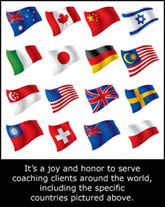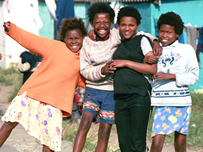 Country profile: South Africa
Country profile: South Africa

BMI expects pharmaceutical spending in South Africa to increase from US$2.34bn in 2008 to US$2.43bn in 2009. A compound annual growth rate (CAGR) of 9.7% will follow from 2009-2014 to give a market value of US$3.86bn at the end of BMI’s five-year forecast period. By 2019, we expect the total drug market to be worth US$4.74bn, with a 2014-2019 CAGR of 4.2% in US dollar terms. In 2014, per-capita drug spending in the country will be US$74.7, with only 0.82% of GDP allocated for medicines at this time.
In December 2009 a new Southern African Generics Medicines Association (SAGMA) was established to drive growth in the region’s pharmaceutical sectors.
Diversity is a key feature of South Africa, where 11 languages are recognised as official, where community leaders include rabbis and chieftains, rugby players and returned exiles, where traditional healers ply their trade around the corner from stockbrokers and where housing ranges from mud huts to palatial homes
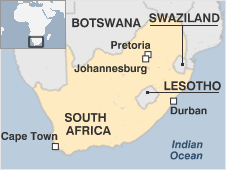
with swimming pools.
Overview
Until 1994 South Africa was ruled by a white minority government which was so determined to hang onto power that it took activists most of the last century before they succeeded in their fight to get rid of apartheid and extend democracy to the rest of the population.
 |
AT-A-GLANCE
Politics: The ANC scored its fourth election victory in April 2009.
Economy: One of continent's biggest economies. Poverty widespread, high crime rate associated with high unemployment. Economy moved into recession in May 2009.
International: Plays a leading role in diplomatic and anti-poverty initiatives in Africa. Emerged from international isolation in 1994 at the end of the apartheid era.
|
The white government which came to power in 1948 enforced a separation of races with its policy called apartheid. It dictated that black and white communities should live in separate areas, travel in different buses and stand in their own queues.
The government introduced grand social engineering schemes such as the forced resettlement of hundreds of thousands of people. It poisoned and bombed opponents and encouraged trouble in neighbouring countries.
The apartheid government eventually negotiated itself out of power, and the new leadership encouraged reconciliation. But the cost of the years of conflict will be paid for a long time yet, not least in terms of lawlessness, social disruption and lost education.
South Africa faces major problems, but having held four successful national elections as well as local polls since the end of white rule, a democratic culture appears to be taking hold, allowing people at least some say in the search for solutions.
Very much Africa's superpower, South Africa has the continent's biggest economy, though this went into recession in May 2009 following a sharp slowdown in the mining and manufacturing sectors.
Many South Africans remain poor and unemployment is high - a factor blamed for a wave of violent attacks against migrant workers from other African countries in 2008 and protests by township residents over poor living conditions in July 2009.
Land redistribution is an ongoing issue. Most farmland is still white-owned. Having so far acquired land on a "willing buyer, willing seller" basis, officials have signalled that large-scale expropriations are on the cards. The government aims to transfer 30% of farmland to black South Africans by 2014. 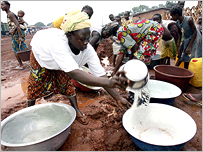
South Africa has the second-highest number of HIV/Aids patients in the world. Around one in seven of its citizens is infected with HIV. Free anti-retroviral drugs are available under a state-funded scheme.
Facts
- Full name: Republic of South Africa
- Population: 50.1 million (UN, 2009)
- Capitals: Pretoria (executive capital); Cape Town (legislative capital); Bloemfontein (judicial capital)
- Largest city: Johannesburg
- Area: 1.22 million sq km (470,693 sq miles)
- Major languages: 11 official languages including English, Afrikaans, Sesotho, Setswana, Xhosa and Zulu
- Major religion: Christianity, Islam, indigenous beliefs
- Life expectancy: 50 years (men), 53 years (women)
- Monetary unit: 1 Rand = 100 cents
- Main exports: Gold, diamonds, metals and minerals, cars, machinery
- GNI per capita: US $5,820 (World Bank, 2008)
- Internet domain: .za
- International dialling code: +27
Leaders
President:
Jacob Zuma
The leader of the ANC, Jacob Zuma, was officially chosen as the country's president by the newly-elected parliament in May 2009.
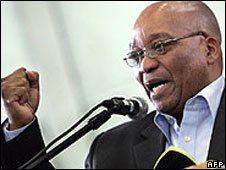
Jacob Zuma trod a rocky road to the presidency
|
Born to a Zulu family in 1942, Mr Zuma has spent his entire adult life since 1959 in the service of the ANC. He joined its armed wing Umkhonto we Sizwe in 1962 and was arrested the following year. He spent ten years in prison for conspiracy to overthrow the apartheid-era government.
After his release he left South Africa and was a leading figure in the ANC abroad until he returned home in 1990 to take part in the talks that brought apartheid to an end.
Mr Zuma was prominent in promoting the ANC among Zulus who had voted for the Inkatha Freedom Party in the first free elections in 1994, and was consistently elected to senior ANC posts. In 1999, he became the deputy president of South Africa under President Thabo Mbeki.
Mr Zuma's standing in the country fell rapidly after he was named in an arms-smuggling case, and President Mbeki dismissed him from the deputy presidency in 2005. Prosecutors then brought corruption charges against him, and shortly afterwards he was charged with rape.
He was acquitted of the rape charge the following year, and his support on the populist left of the party ensured that he was able to defeat President Mbeki in elections for the ANC leadership in December 2007.
Mr Zuma looked set to become president of South Africa after the 2009 parliamentary elections, but the corruption allegations persisted. It was not until April 2009 - weeks before the parliamentary polls - that state prosecutors finally threw out the charges on the grounds that there had been political interference.
The opposition said this was a technicality and that Mr Zuma ought to answer the charges in court. Nonetheless, he led the ANC to a convincing election victory and was duly inaugurated on 9 May.
Media
South Africa is the continent's major media player, and its many broadcasters and publications reflect the diversity of the population.
Established state-run and commercial TV networks broadcast nationally, and hundreds of thousands of viewers subscribe to satellite and cable pay-TV services.
Deregulation in 1996 led to a proliferation of radio stations. Listeners in Johannesburg alone can choose from among some 40 radio services, from the national broadcasts of the state-owned South African Broadcasting Corporation (SABC) to community stations targeting local neighbourhoods or ethnic groups.
The constitution provides for freedom of the press, and this is generally respected. Laws, regulation and political control of media content are considered to be moderate and there is little evidence of repressive measures against journalists.
Newspapers and magazines publish reports and comment critical of the government and the state-owned SABC is far more independent now than during the apartheid era.
The press
Television
- SABC - state broadcaster, operates three national TV networks, two pay-TV channels
- e.tv - free-to-air commercial network
- M-Net - pay-TV, pan-African audience
Radio
- SABC - state broadcaster with 20 regional and national services in 11 languages, including: national English-language network SAfm; contemporary music station 5 FM; national Afrikaans station Radio Sonder Grense; national Zulu station Ukhozi FM; Sesotho station Lesedi FM
- Channel Africa - SABC's external radio service, targeted at the African continent
- YFM - popular Johannesburg commercial R&B, soul and hip-hop station
- 702 Talk Radio - Johannesburg commercial news and talk station
News agency

AFRICA | ASIA-PACIFIC | AMERICAS | EUROPE | MIDDLEEAST | SOUTHASIA



Mauritania Mauritius Morocco Mozambique Namibia Niger Nigeria Republic-of-congo Rwanda Sao-tome-and-principe Senegal Seychelles Sierra-leone Somalia South-africa Sudan Swaziland Tanzania The-gambia Togo Tunisia Uganda Australia Brunei Burma Cambodia China East-timor Fiji Indonesia Japan Kazakhstan Kiribati Kyrgyzstan Laos Malaysia Marshall-islands Micronesia Mongolia Nauru New-zealand North-korea Palau Papua-new-guinea Samoa Singapore Solomon-islands South-korea Taiwan Tajikistan Thailand The-philippines Tonga Turkmenistan Tuvalu Uzbekistan Vanuatu Vietnam Antigua-and-barbuda Belize Bolivia Brazil Canada Chile Colombia Costa-rica Cuba Dominica Dominican-republic Ecuador El-salvador Grenada Guatemala Guyana Haiti Honduras Jamaica Mexico Nicaragua St-kitts-and-nevis St-lucia Suriname Trinidad-and-tobago Uruguay Venezuela Albania Andorra Armenia Austria Azerbaijan Belarus Belgium Bosnia-hercegovina Bulgaria Croatia Cyprus Czech-republic Denmark Estonia Finland France Georgia Germany Greece Hungary Iceland Ireland Italy Latvia Liechtenstein Lithuania Luxembourg Macedonia Malta Moldova Monaco Montenegro Norway Poland Portugal Russia San-marino Serbia Slovakia Slovenia Spain Sweden Algeria Egypt Iran Iraq Israel-and-palestinian-territories Jordan Kuwait Lebanon Libya Mauritania Oman Saudi-arabia Sudan Syria Tunisia United-arab-emirates Yemen Afghanistan Bangladesh Bhutan India Nepal Pakistan Sri-Lanka The-Maldive

 with swimming pools.
with swimming pools. 